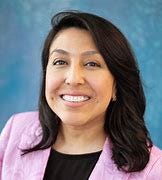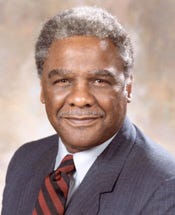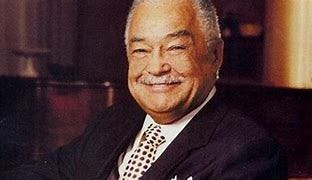Mayor Brandon Johnson’s actions when it comes to his often-pro-Black stance certainly don’t seem to stand up when we look at his recent key appointments. When his chief of staff recently retired, a white male, Johnson replaced him with a Latina. That former chief of staff, Rich Guidice, had three decades of experience at city hall. The replacement, Cristina Pacione-Zayas, is a former Illinois state senator has never worked in municipal government.



Cristina Pacicone-Zyas (l) is the new chief of staff to the mayor, Sendy Soto is the recently appointed homeless director and Jianin Shi (r)was appointed by Johnson to head the Chicago Board of Education
When Johnson offered months ago that he would be traveling to the Texas/Mexico border to see the conditions migrants were leaving before heading to Chicago; he launched into a tirade at a reporter’s innocuous question regarding whether the junket would be paid for by the city. Johnson, who has developed the habit of giving the wrong answer to the right question nearly shouted, “look I am a Black man, with a Black wife and three Black kids…” and never answered the question. It wasn’t the only time the obviously Black mayor has explained his African American heritage to us.
Even a casual observer would find it difficult to substantiate Johnson’s Black “fondness” when looking at his key appointments. Despite the hundreds of thousands of Black men and women living in the city, and probably thousands of them fitting into the professional job category; the mayor has only found three to fill top positions-senior advisor Jason Lee; political director Christian Perry, and communications director Ronnie Reese.
Johnson seemingly goes out of his way to place Hispanics in critical jobs. Most recently he did that with the Cristina Pacione-Zayas appointment, which was followed up by naming Sendy Soto as the first commissioner on homelessness. Soto brings a background of department of housing with the City of Chicago.
The mayor’s choice for president of the Chicago Board of Education is a befuddling one as Jianan Shi was a surprise appointment. While he has worked with students through several non-profit groups, he has not managed any operation that rivals the size and complexity of the local school district. And at 33 years old, some wonder if the Boston transplant has enough of a history here, or even life experiences.
Johnson can learn to be Black from emulating some other pols
Johnson bills himself as a collaborator, but that has proven to be more in theory than practice. He need only to study the loyal, unshakeable, passionate, and faithful Black, Latino. and white coalition the late Mayor Harold Washington built. In the 37 years since his death, no Chicago mayor has been able bring together the type of divergent cohort that Washington did. And many Chicagoans push for a return to those days, but no one has been able to replicate Washington’s success in that regard.
In the early 1980s Maynard Jackson in his campaign for mayor of Atlanta proclaimed if elected he would create Black millionaires-more than had ever been in the city. Upon his successful campaign, Jackson, who was the city’s first Black mayor, was true to his word. He pushed several huge construction projects, including what is now the Hartsfield-Jackson Airport
Detroit’s oft-criticized Mayor Coleman A. Young demonstrated his passion for advancing Black folk in city government by inserting them as department heads throughout the city. When Young found out how lucrative the contract to do the city’s bond work was, he replaced the longtime firm owned by white attorneys with a small Black law firm. That firm, Lewis, White and Clay went on to be one of the largest Black-owned firms in Michigan and got those lucrative bond contracts in other cities.
At the age of 34, Georgia State Senator Julian Bond was nominated as a vice presidential candidate at the Democratic National Committee; but had to reject the gesture because he was too young to serve, as president should the President die or be killed while in office.
Bond, who was defeated by the late John Lewis, is his bid for Congress; was a staunch supporter of Black empowerment. He was so much so, he was often accused of being racist. His pat response was there is a difference in racial and racist. “When one is racial, he wants his own people to succeed, and not necessarily at the expense of someone else. The racist wants his own to succeed and hold back anyone else. I am racial.”










